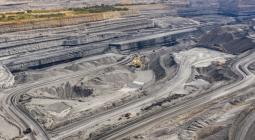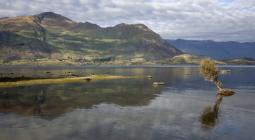Lack of climate action over 50 years will cost Australian economy $3.4tn and 880,000 jobs – report.

If policies promoting net zero emissions by 2050 are adopted 250,000 jobs would be created and $680bn added to the economy.
Australia’s economy will be 6% smaller, there will be 880,000 fewer jobs and $3.4tn in economic opportunities will be lost if the climate crisis goes unchecked for the next 50 years, a report says.
On the other hand, the analysis by consultancy Deloitte Access Economics found policies consistent with a target of net zero emissions by 2050 and keeping global warming to 1.5C could expand the economy by 2.6%, or $680bn to the economy, and create 250,000 jobs.
Deloitte focused on what it said was a fundamental flaw in how climate change is publicly considered – the idea that the costs of acting are weighed against an assumption the economy will keep growing if there are unconstrained emissions. Meanwhile, it said, the benefits of steps to tackle the issue were regularly downplayed.
The report suggested Australia would experience an economic hit on par with Covid-19 every year by 2050 if the climate crisis was not addressed.
It estimated more than 30% of employed Australians and 30% of national income were exposed to economic disruption and risk due to the climate crisis and the coronavirus pandemic, and would suffer in an unplanned economic transition.
“While this is a significant number of jobs and growth at risk – enough to drive recessions – it is not all doom and gloom,” it said. “The good news is that the remaining 70% of the workforce and Australia’s GDP is able to help create the change and a new economic trajectory for Australia in a post-Covid world.”
Chris Richardson, Deloitte Australia’s chief economist, said the experience of Covid showed the cost of overlooking “catastrophic risks”.
“It’s an urgent wake-up call for us to get ahead of that other big risk: climate change,” he said.
“Australians need policy and regulatory reform that modernises our economy and unleashes business investment. The benefits of acting are huge, but we are fast running out of opportunity.”
Richardson said the best way to tackle the climate crisis was through “market mechanisms”. The report recommended chasing “high-growth industries” such as mining new minerals for new technologies, supporting innovation in advanced manufacturing and investing in upgrading and replacing infrastructure.
It was the latest in a growing push from across the political spectrum, including significant parts of the business sector and the community, for the government to do far more to back a green recovery to set the economy up for an inevitable shift to zero emissions.
Modelling from different sources has routinely found the cost of waiting would be greater than acting now. That finding has become more pronounced as the cost of renewable energy reduced substantially in recent years. Last month the International Energy Agency said solar was the cheapest form of energy in human history.
Pradeep Philip, the report’s lead author, said reaching net zero emissions by 2050 – a target the Morrison government has rejected but that is backed by the European Union, Britain, Japan, South Korea, Canada and US presidential candidate Joe Biden – to limit global heating to 1.5C above pre-industrial levels, and certainly no greater than 2C, was an “economic necessity”.
“Whatever Australia does or doesn’t do, the global warming which has already taken place will hurt our lives and livelihoods. This cost is locked in – it is the cost of delay,” he said.
“There isn’t a ‘no-cost’ option, so if we could take action today to prevent the next great recession from climate change, why wouldn’t we?”
Philip said there would be costs and some losers in a transition to net zero emissions, “but we’ll all be losers if we fail to act”.
The report estimated reaching net zero emissions would reduce GDP by $90bn by 2050. It said about a quarter of this – $23bn – is unavoidable due to locked-in impacts of climate change, and the remaining $67bn is a small price to pay relative to the size of the economy.
“For comparison, the current jobjeeper program is costing the federal budget just over $65bn this year alone – and this is the necessary price Australia is paying to minimise the worst economic consequences of Covid,” it said.
The Intergovernmental Panel on Climate Change found emissions would need to reach net zero by about 2050 to limit global heating to 1.5C, considered necessary to limit the effects of climate change.
But it said it would also require rapid action over the next decade: a 45% cut in global emissions compared with 2010 levels by 2030.
1 November 2020
The Guardian







